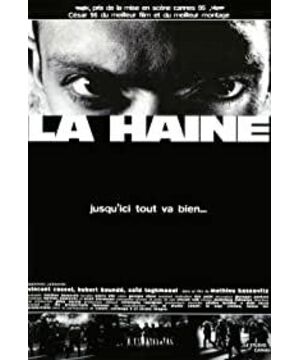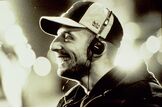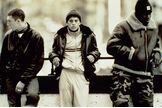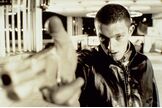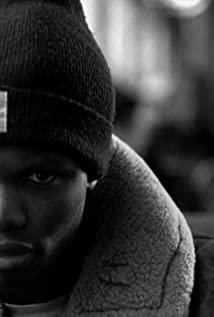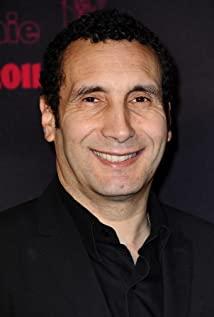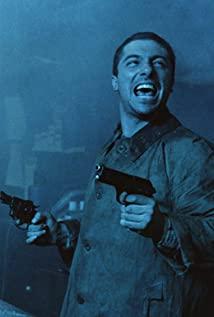Vinz is a Jewish youth who finds the gun that was lost by a police officer during the riots. Early on the film has Vinz hilariously threatening invisible antagonists in a mirror, signaling a sense of rage towards the world which becomes clearer as he carries the gun around ,wanting to shoot people and even the score. However he is not a killer—not even after his friend Abdel beaten by the police died in the hospital or when Hubert and Said were sieged by skinheads. All he craves for is respect from the repressing mainstream society embodied by the police, which is a direct response to the articulation between the inside and outside of the projects.
The social isolation of the project youth manifest itself again when the trio find themselves lost in the concrete jungle of Paris. Despite their distinct dressing, behavior and slangs from Parisians, they obviously lack the skill to keep a normal conversation with people outside of the projects : Vinz is easily irritated by the harmless joke of local residents, and Said acts aggressively when he tries to initiate a talk with the girls in gallery. Instead of assigning blame to one end of the society, the director Mathieu Kassovitz objectively recognizes the fact that out of hatred and desperation the project youth acts in a certain way that justifies the demonization the society puts on them, that hate breeds hate, hate creates hate.
The social exclusion of immigrants living in Paris suburbs still resonates in nowadays France politics. In the 2005 Paris riots, the later-to-be President Nicholas Sarkozy referred to rioters as “scum” and claimed that the suburbs should be cleaned of them with a power hose, while Kassovitz gave a ferocious attack on Sarkozy back through his blog. How long would the current situation last before things burst out? No one knows. To me, Hubert's story of a man in freefall which punctuates the film seems like a meaningful metaphor for reality: "it's not how you fall matters, it's how you land."
View more about La Haine reviews


